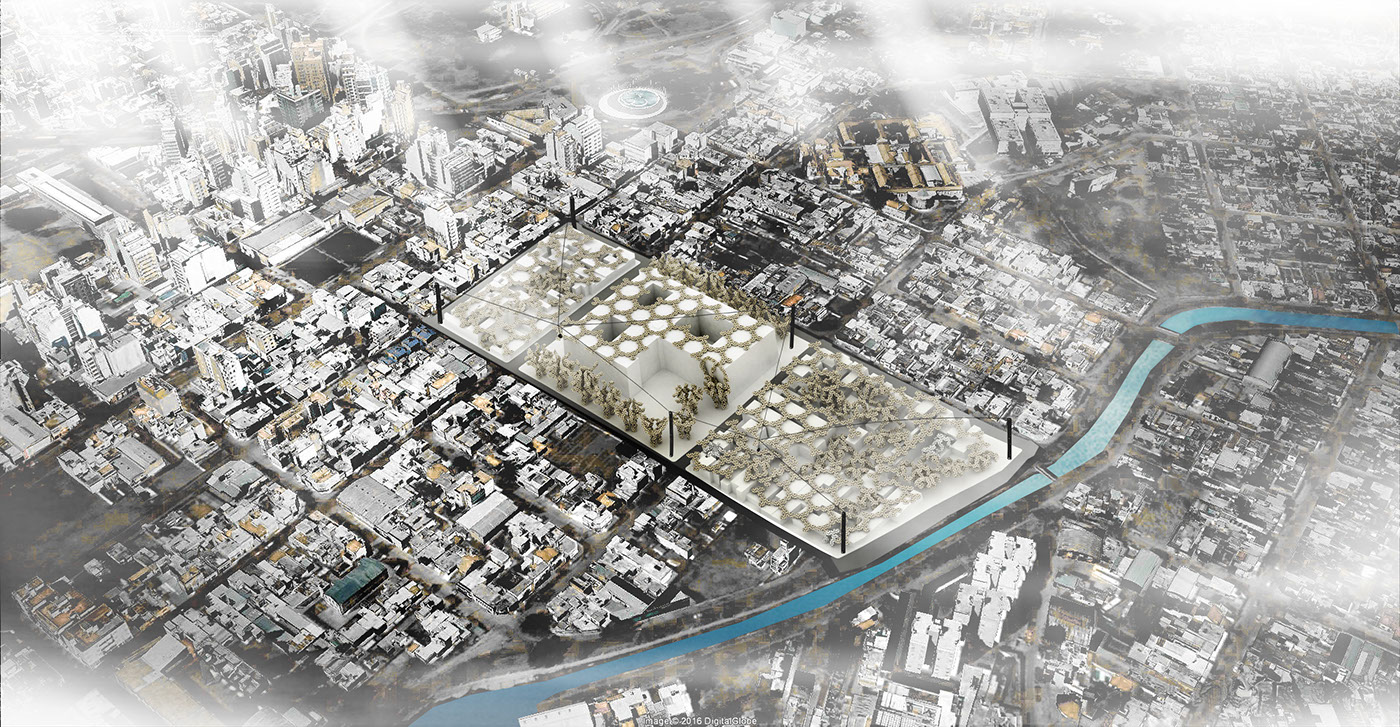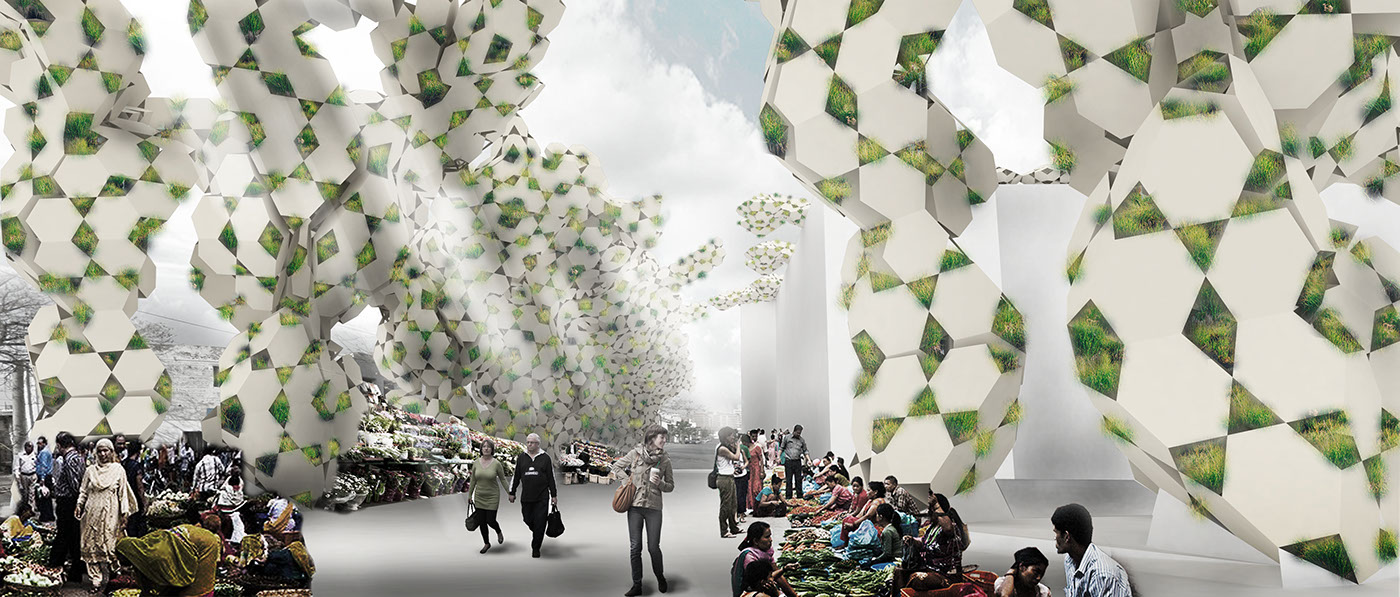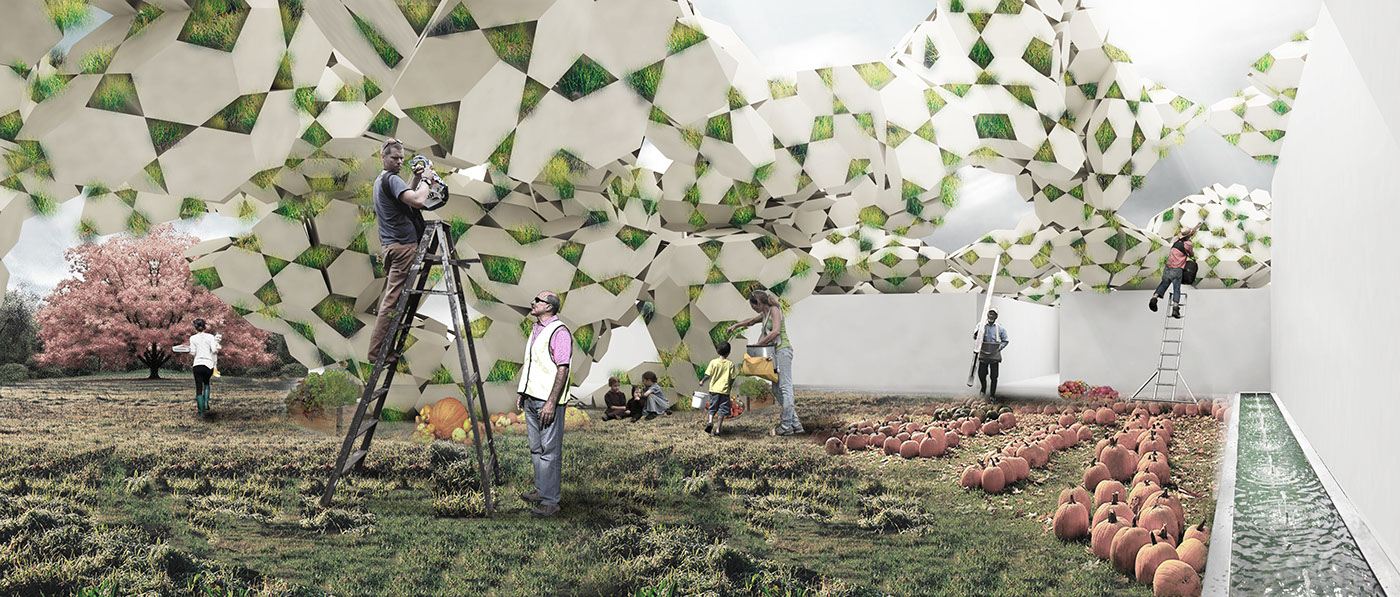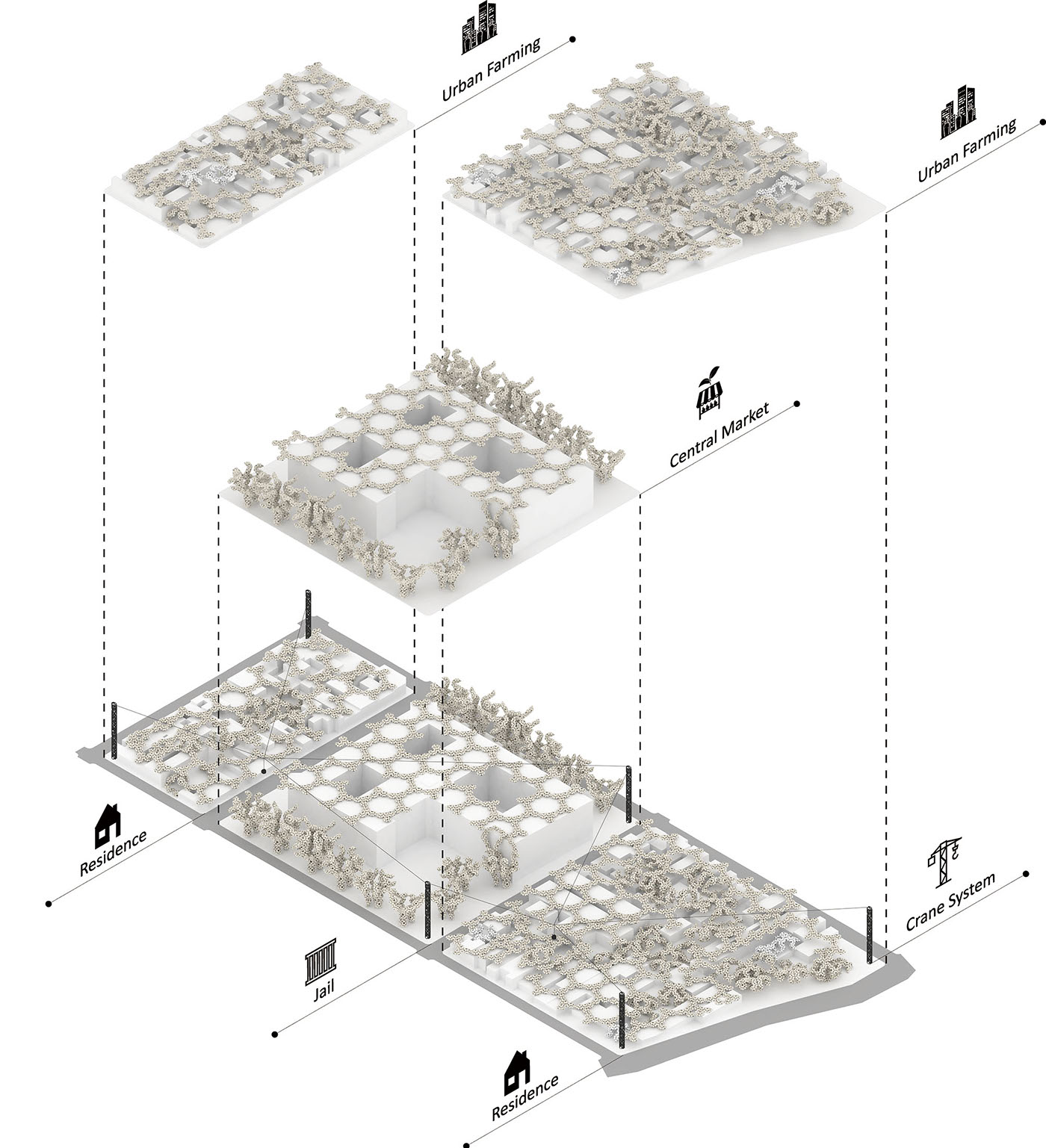
Thesis: Urban Prosthesis for Food Access
Team Member: Ani Cid, Matias Flores, Julian Fontan, Simon Zhang
Studio: RPI + UNC 2016 Fall
Instructors: Gustavo Crembil, Pablo Oshiro
In the future, poor people live in the city will have more problems getting access to food. Along with the expansion of urban fabric, the farmland will be more distant than it is today. The price of food will increase due to transportation cost and multi-sellers profits. In order to avoid such circumstance, food needs to be fostered and harvested inside the city. Many architects have already focused on urban farming for decades. However, forcing plants to grow in a high-rise is hardly a good solution to this situation. The utopia idea of urban farming might be realized through using low-cost prosthesis modules as extra structures for existing buildings.
This project took reference from hive nest, a super condensed bio-structure that might be the most efficient bio-system that produce food on the earth. The site is in Cordoba, Argentina. We chose three blocks as experiment field for this project. Two of them are residential blocks on two sides. The one in the middle is an abandoned jail, which will be renewed as a cultural center in the future. The structure has certain logics, following the behavior of parasites, wrapping on the top of three blocks to form an urban scale landscape. Plants will grow inside the module as an enclosed ecological system.
This "bio-structure" will adapt to the specific location according to spatial condition and people's need. For the jail that has a lot of open space, it will form a giant high structure as a market for local residents to gather and trade food. For the residential blocks that have relatively narrow space, it will form gardens for a small amount of people to foster plants and harvest food. People live there can also enjoy the green space consist of HIVE modules.
A crane system is introduced to move modules or even large clusters from one block to another. The mobility of these modules will reduce the total number of modules and thus reduce the cost in general. People in different blocks will share these modules, as it also served the function of social connection.
Central Market

Urban Farming

Axon Expolsion

Structural Details

Final Presentation



